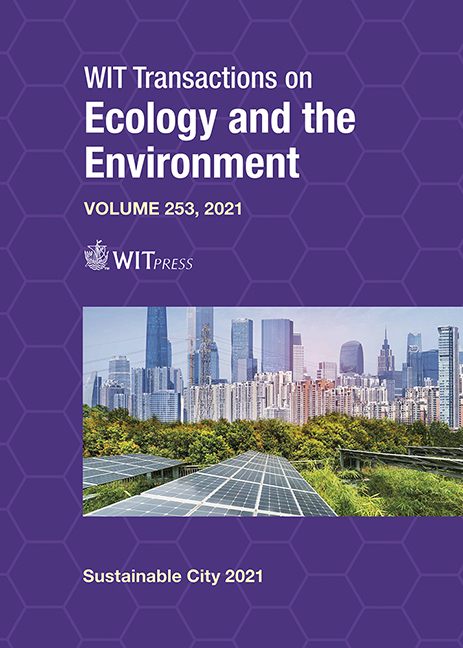URBAN AGRICULTURE AS A SUSTAINABLE OPTION FOR SOLID WASTE MANAGEMENT: CASE STUDY OF AN INDIAN CITY
Price
Free (open access)
Transaction
Volume
253
Pages
12
Page Range
629 - 640
Published
2021
Size
1,768 kb
Paper DOI
10.2495/SC210511
Copyright
Author(s)
HARI PRASAD AGARWAL, SUCHANDRA BARDHAN, DEBASHISH DAS
Abstract
The rapid growth of India’s urban population coupled with food security concerns has driven urban agriculture into Indian cities. It is also commonly known that urban local bodies are struggling with the ever-increasing municipal solid waste, and in managing its segregation, transportation, and treatment. Inadequate organic waste management causes a slew of issues like gas emissions and health risks to the community. Since household wet wastes are full of nutrient-rich organic matter favorable for growing plants, urban agriculture provides an excellent opportunity of bridging the gap by reimagining waste as a resource. This study is based on the premise that decentralized urban waste management can be achieved through reusing and recycling organic waste that can benefit urban food production. It has conducted a qualitative and quantitative assessment of the organic waste usage in urban agriculture in the Indian city of Mumbai, Maharashtra. This paper presents the results of the study and examines the existing and potential capacity of urban agriculture in consuming organic urban waste in Mumbai’s context. This case study also helps in visualizing circular economy against a real-life urban scenario and how the production-consumption loop may gainfully sustain each other. Based on the learning, the paper recommends mainstreaming urban agriculture into the sustainable city framework.
Keywords
compost, organic waste, recycling, solid waste management, urban agriculture





